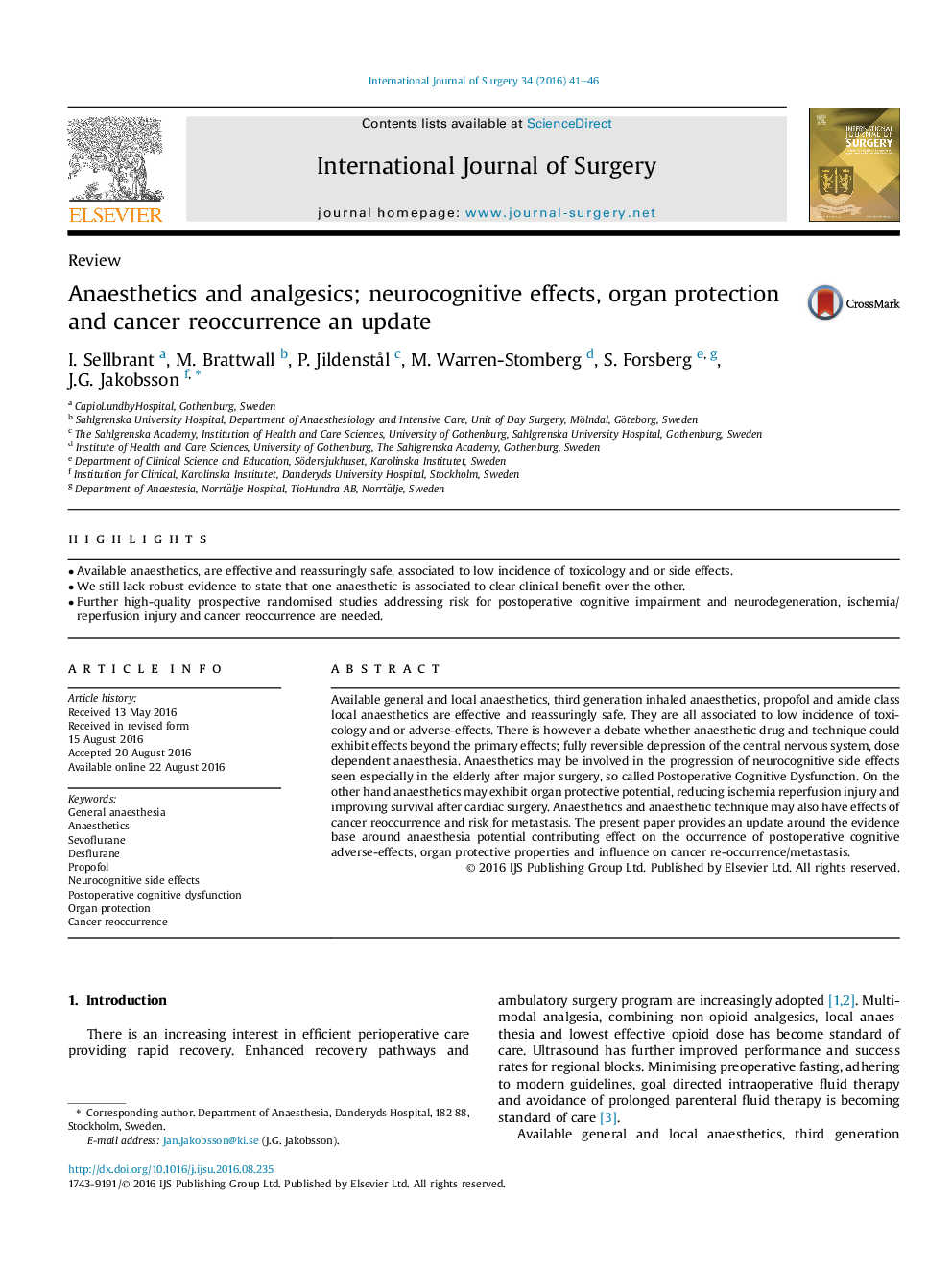| Article ID | Journal | Published Year | Pages | File Type |
|---|---|---|---|---|
| 4285258 | International Journal of Surgery | 2016 | 6 Pages |
•Available anaesthetics, are effective and reassuringly safe, associated to low incidence of toxicology and or side effects.•We still lack robust evidence to state that one anaesthetic is associated to clear clinical benefit over the other.•Further high-quality prospective randomised studies addressing risk for postoperative cognitive impairment and neurodegeneration, ischemia/reperfusion injury and cancer reoccurrence are needed.
Available general and local anaesthetics, third generation inhaled anaesthetics, propofol and amide class local anaesthetics are effective and reassuringly safe. They are all associated to low incidence of toxicology and or adverse-effects. There is however a debate whether anaesthetic drug and technique could exhibit effects beyond the primary effects; fully reversible depression of the central nervous system, dose dependent anaesthesia. Anaesthetics may be involved in the progression of neurocognitive side effects seen especially in the elderly after major surgery, so called Postoperative Cognitive Dysfunction. On the other hand anaesthetics may exhibit organ protective potential, reducing ischemia reperfusion injury and improving survival after cardiac surgery. Anaesthetics and anaesthetic technique may also have effects of cancer reoccurrence and risk for metastasis. The present paper provides an update around the evidence base around anaesthesia potential contributing effect on the occurrence of postoperative cognitive adverse-effects, organ protective properties and influence on cancer re-occurrence/metastasis.
